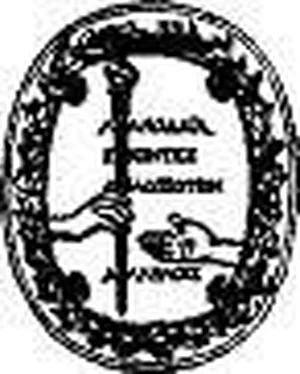Herbert Wells - Tales of Space and Time
Здесь есть возможность читать онлайн «Herbert Wells - Tales of Space and Time» весь текст электронной книги совершенно бесплатно (целиком полную версию без сокращений). В некоторых случаях можно слушать аудио, скачать через торрент в формате fb2 и присутствует краткое содержание. Жанр: Фантастика и фэнтези, на английском языке. Описание произведения, (предисловие) а так же отзывы посетителей доступны на портале библиотеки ЛибКат.
- Название:Tales of Space and Time
- Автор:
- Жанр:
- Год:неизвестен
- ISBN:нет данных
- Рейтинг книги:4 / 5. Голосов: 1
-
Избранное:Добавить в избранное
- Отзывы:
-
Ваша оценка:
- 80
- 1
- 2
- 3
- 4
- 5
Tales of Space and Time: краткое содержание, описание и аннотация
Предлагаем к чтению аннотацию, описание, краткое содержание или предисловие (зависит от того, что написал сам автор книги «Tales of Space and Time»). Если вы не нашли необходимую информацию о книге — напишите в комментариях, мы постараемся отыскать её.
Tales of Space and Time — читать онлайн бесплатно полную книгу (весь текст) целиком
Ниже представлен текст книги, разбитый по страницам. Система сохранения места последней прочитанной страницы, позволяет с удобством читать онлайн бесплатно книгу «Tales of Space and Time», без необходимости каждый раз заново искать на чём Вы остановились. Поставьте закладку, и сможете в любой момент перейти на страницу, на которой закончили чтение.
Интервал:
Закладка:
He made his apology straight and clean. He scrambled up and walked to Blunt. "I was a fool, and you are right," he said. "If it isn't too late ..."
That night, after the second spell, Denton went with Blunt to certain waste and slime-soaked vaults under the Port of London, to learn the first beginnings of the high art of scrapping as it had been perfected in the great world of the underways: how to hit or kick a man so as to hurt him excruciatingly or make him violently sick, how to hit or kick "vital," how to use glass in one's garments as a club and to spread red ruin with various domestic implements, how to anticipate and demolish your adversary's intentions in other directions; all the pleasant devices, in fact, that had grown up among the disinherited of the great cities of the twentieth and twenty-first centuries, were spread out by a gifted exponent for Denton's learning. Blunt's bashfulness fell from him as the instruction proceeded, and he developed a certain expert dignity, a quality of fatherly consideration. He treated Denton with the utmost consideration, only "flicking him up a bit" now and then, to keep the interest hot, and roaring with laughter at a happy fluke of Denton's that covered his mouth with blood.
"I'm always keerless of my mouth," said Blunt, admitting a weakness. "Always. It don't seem to matter, like, just getting bashed in the mouth—not if your chin's all right. Tastin' blood does me good. Always. But I better not 'it you again."
Denton went home, to fall asleep exhausted and wake in the small hours with aching limbs and all his bruises tingling. Was it worth while that he should go on living? He listened to Elizabeth's breathing, and remembering that he must have awaked her the previous night, he lay very still. He was sick with infinite disgust at the new conditions of his life. He hated it all, hated even the genial savage who had protected him so generously. The monstrous fraud of civilisation glared stark before his eyes; he saw it as a vast lunatic growth, producing a deepening torrent of savagery below, and above ever more flimsy gentility and silly wastefulness. He could see no redeeming reason, no touch of honour, either in the life he had led or in this life to which he had fallen. Civilisation presented itself as some catastrophic product as little concerned with men—save as victims—as a cyclone or a planetary collision. He, and therefore all mankind, seemed living utterly in vain. His mind sought some strange expedients of escape, if not for himself then at least for Elizabeth. But he meant them for himself. What if he hunted up Mwres and told him of their disaster? It came to him as an astonishing thing how utterly Mwres and Bindon had passed out of his range. Where were they? What were they doing? From that he passed to thoughts of utter dishonour. And finally, not arising in any way out of this mental tumult, but ending it as dawn ends the night, came the clear and obvious conclusion of the night before: the conviction that he had to go through with things; that, apart from any remoter view and quite sufficient for all his thought and energy, he had to stand up and fight among his fellows and quit himself like a man.
The second night's instruction was perhaps less dreadful than the first; and the third was even endurable, for Blunt dealt out some praise. The fourth day Denton chanced upon the fact that the ferret-faced man was a coward. There passed a fortnight of smouldering days and feverish instruction at night; Blunt, with many blasphemies, testified that never had he met so apt a pupil; and all night long Denton dreamt of kicks and counters and gouges and cunning tricks. For all that time no further outrages were attempted, for fear of Blunt; and then came the second crisis. Blunt did not come one day—afterwards he admitted his deliberate intention—and through the tedious morning Whitey awaited the interval between the spells with an ostentatious impatience. He knew nothing of the scrapping lessons, and he spent the time in telling Denton and the vault generally of certain disagreeable proceedings he had in mind.
Whitey was not popular, and the vault disgorged to see him haze the new man with only a languid interest. But matters changed when Whitey's attempt to open the proceedings by kicking Denton in the face was met by an excellently executed duck, catch and throw, that completed the flight of Whitey's foot in its orbit and brought Whitey's head into the ash-heap that had once received Denton's. Whitey arose a shade whiter, and now blasphemously bent upon vital injuries. There were indecisive passages, foiled enterprises that deepened Whitey's evidently growing perplexity; and then things developed into a grouping of Denton uppermost with Whitey's throat in his hand, his knee on Whitey's chest, and a tearful Whitey with a black face, protruding tongue and broken finger endeavouring to explain the misunderstanding by means of hoarse sounds. Moreover, it was evident that among the bystanders there had never been a more popular person than Denton.
Denton, with proper precaution, released his antagonist and stood up. His blood seemed changed to some sort of fluid fire, his limbs felt light and supernaturally strong. The idea that he was a martyr in the civilisation machine had vanished from his mind. He was a man in a world of men.
The little ferret-faced man was the first in the competition to pat him on the back. The lender of oil cans was a radiant sun of genial congratulation.... It seemed incredible to Denton that he had ever thought of despair.
Denton was convinced that not only had he to go through with things, but that he could. He sat on the canvas pallet expounding this new aspect to Elizabeth. One side of his face was bruised. She had not recently fought, she had not been patted on the back, there were no hot bruises upon her face, only a pallor and a new line or so about the mouth. She was taking the woman's share. She looked steadfastly at Denton in his new mood of prophecy. "I feel that there is something," he was saying, "something that goes on, a Being of Life in which we live and move and have our being, something that began fifty—a hundred million years ago, perhaps, that goes on—on: growing, spreading, to things beyond us—things that will justify us all.... That will explain and justify my fighting—these bruises, and all the pain of it. It's the chisel—yes, the chisel of the Maker. If only I could make you feel as I feel, if I could make you! You will , dear, I know you will."
"No," she said in a low voice. "No, I shall not."
"So I might have thought—"
She shook her head. "No," she said, "I have thought as well. What you say—doesn't convince me."
She looked at his face resolutely. "I hate it," she said, and caught at her breath. "You do not understand, you do not think. There was a time when you said things and I believed them. I am growing wiser. You are a man, you can fight, force your way. You do not mind bruises. You can be coarse and ugly, and still a man. Yes—it makes you. It makes you. You are right. Only a woman is not like that. We are different. We have let ourselves get civilised too soon. This underworld is not for us."
She paused and began again.
"I hate it! I hate this horrible canvas! I hate it more than—more than the worst that can happen. It hurts my fingers to touch it. It is horrible to the skin. And the women I work with day after day! I lie awake at nights and think how I may be growing like them...."
She stopped. "I am growing like them," she cried passionately.
Denton stared at her distress. "But—" he said and stopped.
"You don't understand. What have I? What have I to save me? You can fight. Fighting is man's work. But women—women are different.... I have thought it all out, I have done nothing but think night and day. Look at the colour of my face! I cannot go on. I cannot endure this life.... I cannot endure it."
Читать дальшеИнтервал:
Закладка:
Похожие книги на «Tales of Space and Time»
Представляем Вашему вниманию похожие книги на «Tales of Space and Time» списком для выбора. Мы отобрали схожую по названию и смыслу литературу в надежде предоставить читателям больше вариантов отыскать новые, интересные, ещё непрочитанные произведения.
Обсуждение, отзывы о книге «Tales of Space and Time» и просто собственные мнения читателей. Оставьте ваши комментарии, напишите, что Вы думаете о произведении, его смысле или главных героях. Укажите что конкретно понравилось, а что нет, и почему Вы так считаете.





